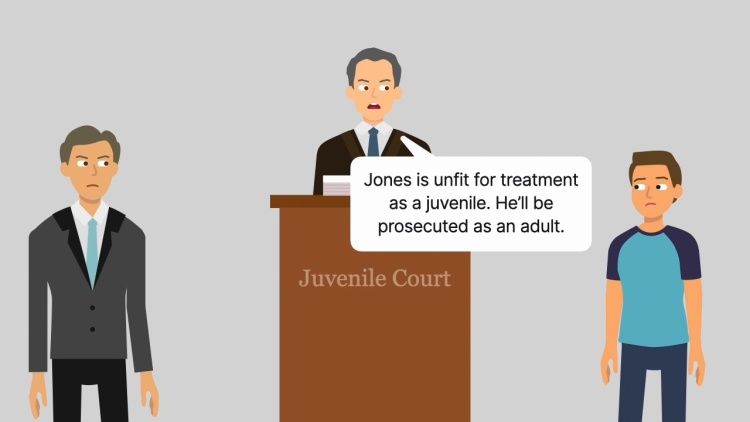Breed v. Jones
United States Supreme Court
421 U.S. 519 (1975)
- Written by Mary Katherine Cunningham, JD
Facts
The state filed a petition in juvenile court alleging Jones (defendant) committed an armed robbery and was, therefore, delinquent. The juvenile court conducted an adjudicatory hearing and continued to a dispositional hearing. At the dispositional hearing, the juvenile court stated its intention to find Jones was not amenable to the care available through the juvenile court. Jones’s counsel objected, but the juvenile court subsequently declared Jones unfit for treatment as a juvenile. The state then charged Jones in criminal court with armed robbery. The criminal court found Jones guilty of robbery. Jones filed a petition for a writ of habeas corpus, arguing his transfer to adult court and subsequent trial placed him in double jeopardy. The district court denied the petition, rejecting Jones’s argument that jeopardy attached at his adjudicatory hearing in juvenile court. The court of appeals reversed the district court, holding that applying the Double Jeopardy Clause is fully applicable to juvenile court proceedings. The state, including officials like Breed (plaintiff), appealed, and the Supreme Court granted certiorari.
Rule of Law
Issue
Holding and Reasoning (Burger, C.J.)
What to do next…
Here's why 911,000 law students have relied on our case briefs:
- Written by law professors and practitioners, not other law students. 47,100 briefs, keyed to 997 casebooks. Top-notch customer support.
- The right amount of information, includes the facts, issues, rule of law, holding and reasoning, and any concurrences and dissents.
- Access in your classes, works on your mobile and tablet. Massive library of related video lessons and high quality multiple-choice questions.
- Easy to use, uniform format for every case brief. Written in plain English, not in legalese. Our briefs summarize and simplify; they don’t just repeat the court’s language.





